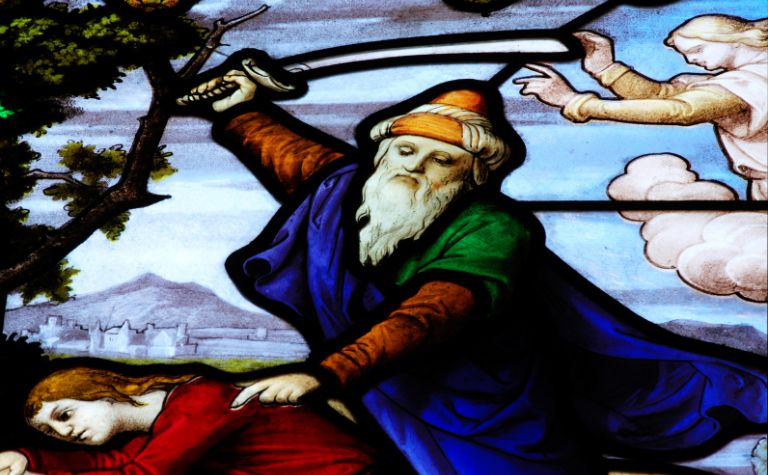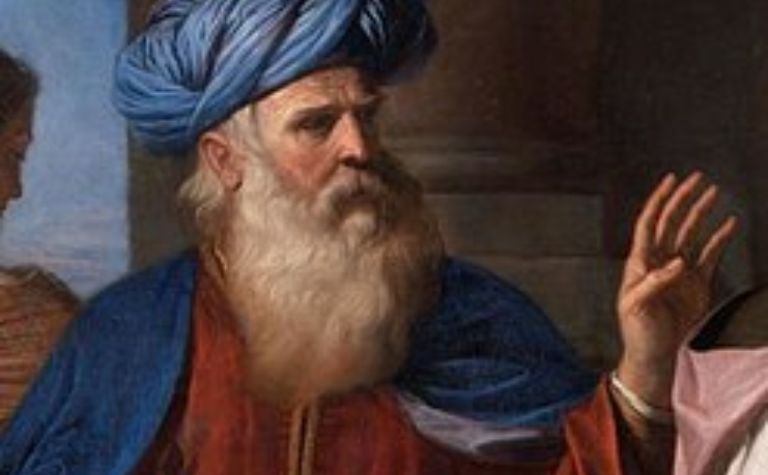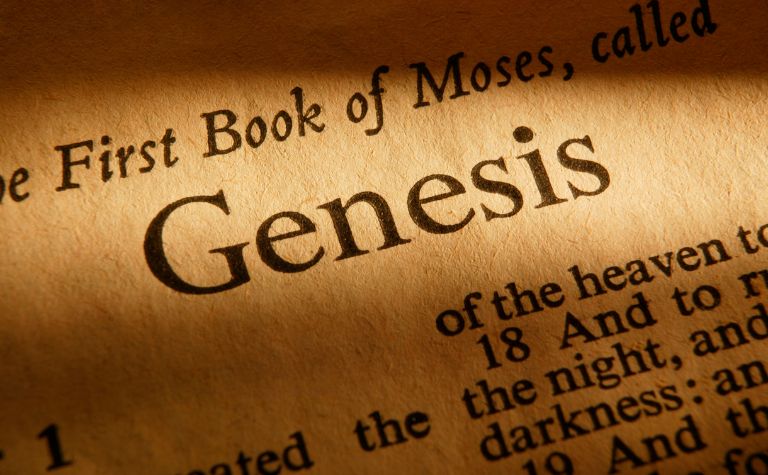Abraham is one of the most significant people in the Bible. In the Old Testament, his legacy is that he was the first Hebrew patriarch, the father of the nation of Israel. In the New Testament, in addition to being the forefather of the Jewish people, his legacy is that he was a man of extraordinary faith. One of the first questions people ask about Abraham is when he lived.
According to the book of Genesis, Abraham lived in ancient Mesopotamia over 4,000 years ago during the time now known as the period of the Patriarchs. He lived over 500 years before Moses, 1,000 years before David, and 2,000 years before Jesus of Nazareth. Abraham lived for 175 years.
Where is the story of Abraham in Genesis? Did he live before or after Noah, Isaac, and Jacob? What does it mean that Abraham lived during the time of the patriarchs? What major events occurred in Abraham’s lifetime? Keep reading to learn the answers to these questions and others.
Also, Isaac plays a vital role in Abraham’s story. Many readers want to know how old Abraham was when Isaac was born. Please see the article to learn more.

The Life and Times of Abraham
Abraham is the main character of Genesis 11:10-25:11. His wife Sarah and sons Isaac and Jacob are also prominent in the section. Abraham’s narrative occurs after the Towel of Babel story (Gen. 11:1-9) and before Ishmael’s (25:12-18) and Isaac’s narratives (25:19-26:35).
In Genesis, Abraham’s story occurs within the narrative framework of “the generations of Terah,” who was his father (Gen. 11:27). It starts with God’s promise to him of land, nation, and blessing (Gen. 12:1-3).
| Adam to Lamech (Gen. 5) | Before 3,000 B.C. |
| Noah (Gen. 6-9) | 2500-3000 B.C. |
| Abram is born | 2166 B.C. |
| Abram migrates to Canaan | 2091 B.C. |
| Abraham dies | 1991 B.C. |
| Isaac is born | 2066 B.C. |
| Jacob is born | 2005 B.C. |
| Isaac dies | 1886 B.C. |
| Jacob dies | 1859 B.C. |
| Joseph is born | 1914 B.C. |
| Joseph dies | 1804 B.C. |
The table above shows traditional estimates of when people lived and died. However, dating lives and events before Abraham can be challenging, and scholars have differing views about how to do it.
One important related issue is how and when to date the flood of Noah. Another critical factor is whether or not the genealogies in Genesis 5 and 11 contain gaps.
God makes a promise to Abraham
God promised Abraham land: “Go from your country and your kindred and your father’s house to the land that I will show you” (Gen 12:1). He also promised him a nation: “And I will make of you a great nation, and I will bless you and make your name great, so that you will be a blessing” (Gen. 12:2).
Lastly, he promised him blessing: “I will bless those who bless you, and him who dishonors you I will curse, and in you all the families of the earth shall be blessed” (Gen. 12:3).
Abraham’s narrative in Genesis includes stories about God’s faithfulness to his promise (e.g., Gen. 21:1-8). It also contains stories about when there were threats to the promises and how God overcame them (e.g., Gen. 20:1-18).
Major Events in Abraham’s Lifetime
| Abraham goes to Canaan |
| Ishmael is born to Abraham and Hagar |
| God destroys Sodom and Gomorrah |
| Isaac is born to Abraham and Sarah |
| Abraham sends Hagar and Ishmael away |
| Abraham attempts to sacrifice Isaac |
| Sarah dies |
| Isaac marries Rebecca |
| Esau and Jacob are born |
| Abraham dies |
Understanding Abraham’s lifespan helps to learn his story in the Bible. To do this, it’s wise for readers to know Abraham’s age when he died. See the full article for details.

Abraham Was the First Patriarch
Many Old Testament scholars refer to Abraham’s era as the time of The Patriarchs (Gen. 12-50). It starts with Abraham and ends with Joseph’s death. It occurs after the time of The Beginnings, which includes the creation account, Adam and Eve, the flood of Noah, and the Tower of Babel (Gen. 1-11). It comes before the time of Egypt and the Exodus (Exod. 1-20).
| Patriarch | Father |
|---|---|
| Abraham | Son of Terah |
| Isaac | Son of Abraham |
| Jacob | Son of Abraham |
| Reuben | Son of Jacob |
| Simeon | Son of Jacob |
| Levi | Son of Jacob |
| Judah | Son of Jacob |
| Dan | Son of Jacob |
| Naphtali | Son of Jacob |
| Gad | Son of Jacob |
| Asher | Son of Jacob |
| Issachar | Son of Jacob |
| Zebulun | Son of Jacob |
| Joseph | Son of Jacob |
| Benjamin | Son of Jacob |
The term “patriarch” comes from the Greek word pater (πατήρ), meaning “father.” Regarding biblical history, a patriarch is one of the founding fathers of the nation of Israel. Yet, the New Testament occasionally refers to any leader in ancient Israel as a patriarch like David (e.g., Acts 2:29).
Abraham is the chief patriarch because he is the first one. God told him, not his father, Terah, or his grandfather, Nahor, that a nation would come from his line.
Also, Abraham’s sons play a key role in his narrative. Learn how many sons Abraham had for more insight into his marriage and family.
New Testament Descriptions of Patriarchs
The New Testament refers to Abraham and his first and second-generation descendants as patriarchs. In Greek, the term comes from the word for “father” (see above). Some translations render the word “fathers” (NASB); others say “ancestors” (NLT). But most say “patriarchs.”
| Reference | Verse |
|---|---|
| Acts 7:9 | “And the patriarchs, jealous of Joseph, sold him into Egypt; but God was with him.” (ESV) |
| Hebrews 7:4 | “See how great this man was to whom Abraham the patriarch gave a tenth of the spoils!” (ESV) |
| Romans 9:5 | “To them belong the patriarchs, and from their race, according to the flesh, is the Christ, who is God over all, blessed forever. Amen.” (ESV) |

Abraham’s Story in Genesis
| Passage | Genesis |
|---|---|
| The Genealogy of Abraham | 11:10–32 |
| The Call of Abraham | 12:1–9 |
| Abraham and Sarai in Egypt | 12:10–20 |
| Abraham and Lot | 13:1–18 |
| War of the Four Kings vs. the Five Kings | 14:1–16 |
| Melchizedek Blesses Abraham | 14:17–24 |
| The Covenant Between the Parts | 15:1–21 |
| Hagar and Ishmael | 16:1–16 |
| The Covenant of Circumcision | 17:1–27 |
| The Three Visitors | 18:1–15 |
Readers of Genesis who are familiar with Abraham’s story know about his wife, Sarah. Yet she wasn’t his only wife. Learn the answer to the question of how many wives Abraham had for more.
| Sodom and Gomorrah | 18:16–19:38 |
| Abraham, Sarah, and Abimelech | 20:1–18 |
| Isaac’s Birth Its Effects on Hagar and Ishmael | 21:1–34 |
| The Binding of Isaac | 22:1–19 |
| The Genealogy of Rebekah | 22:20–24 |
| The Death and Burial of Sarah | 23:1–20 |
| Isaac and Rebekah | 24:1–67 |
| Abraham and Keturah | 25:1–6 |
| The Death and Burial of Abraham | 25:7–11 |
References:
[1] Holman Illustrated Bible Dictionary
[2] ESV Study Bible
Related Questions
The story of Noah, the flood, and the ark is one of the most iconic narratives in the Bible. Not only does the magnitude of the floodwaters leave readers awe-struck, but so does the faith that Noah...
Adam and Eve are the first humans God created. Readers know the pair as the first man and woman, and as the first people to rebel against God, which they did in the Garden of Eden. Did Adam and Eve...
